|
Season 4 has been all about bilingualism, multilingualism and various crosslinguistic pedagogical approaches. In this episode, I had the privilege of interviewing Johanne Paradis, Professor in the Department of Linguistics and Adjunct Professor in Communication Sciences and Disorders at the University of Alberta. Johanne has published more than 70 peer-reviewed journal articles and chapters on bilingual children and is first author of Dual Language Development and Disorders, 3rd Edition, Brookes Publishing (2021). Throughout this episode, we talk mostly about immigrant or refugee children learning English-as-a-second language. We also touch on language disorders in bilingual children. Johanne provides many tips and advice for teachers, educators and speech-language pathologists. Here are a few examples:
Advice for teachers/SLPs/educators
As well as advice for parents who mainly speak a heritage language in the home. Advice for parents
Johanne also talks about her website where you can find resources and useful information: Child English Second Language (CHESL) Centre: https://sites.google.com/ualberta.ca/chesl/home Be sure to subscribe to this podcast on your favorite podcast platform. Thanks for listening!
0 Comments
Most people have heard about lasting symptoms of COVID-19 months after the initial symptoms have subsided. Very few of us have heard about the impact of COVID-19 on swallowing. In this episode, I interview Avital Winer, speech and language pathologist and acting profession leader of speech-language pathology and audiology at the Ottawa Hospital, who explains to us how COVID-19 can impact one's swallowing ability and the many challenges that speech-language pathologists must face when caring for their patients. During the episode, we talk about a recent news article that was published, featuring the role of speech-language pathologists in the hospital setting as it pertains to COVID-19: "The speech pathologists helping COVID-19 patients learn how to swallow and speak again". Although speech-language pathologists have always been involved in the care of patients with swallowing difficulties (dysphagia), their role has not always been well understood by other healthcare professionals and the public. The pandemic has shed some light on the importance of the speech-language pathologists as frontline workers who have the training, the knowledge and the expertise to assess and treat patients who may be at risk of developing or who have swallowing difficulties.
The Langmore et al. (2002) study: Predictors of Aspiration Pneumonia in Nursing Home Residents is mentioned during this episode. The abstract can be found here. If you aren't familiar with the Fiberoptic Endoscopic Evaluation of Swallowing, you can find more information about it here. 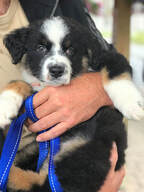 Finley Crittenden. My new podcast buddy. Finley Crittenden. My new podcast buddy.
It took a bit longer for me to get this Happy Stories episode out but I managed to piece it all together before May – “Better Speech and Hearing Month” or “Communication month” was over! You will hear the sound of my vehicle running in the background whenever I speak. That’s because my family and I were on our way to pick up our new Australian Shepherd puppy named Finley while I was working on the episode. We had a four-hour drive so I jumped on that opportunity to finalize this episode. Here’s a picture of Finley! What a cutie. I’m in love already.
I’m very pleased with how this episode turned out. I wasn’t sure what I would get and was very pumped when I heard each and every one of the stories. They sure put a smile on my face, which was the purpose of the episode. COVID-19 has brought on a lot of uncertainty and hardship for many. I hope that you can find a bit of positivity in this episode and know that there is a light at the end of the tunnel. Thank you so much to everyone who contributed to this Happy Story. Let's celebrate the work of speech-language pathologists together by sharing this episode! Here are the names of all those who contributed and some of their websites and Instagram handles: Korynn Agnew @korynn_aslp Becky McArthur at We Communicate www.wecommunicateslp.com @we_communicate Desiree Rusch www.slptalkwithdesiree.com or www.shopslptalk.com @slptalk Alyssa Gibson @alyssagib_ @special_needs_siblings Kassy at @slp4lyfe Stephen Kneece @speechandlanguagesongs www.speechandlanguagesongs.com Carol Baingana @communicaide Sara Dubreuil-Piché @Sararosepiche Speech Simplified @speech.simplified Here is the link to Dylan’s full speech using his communication device: https://www.youtube.com/watch?v=omoszryJBFg&feature=emb_logo Also, here is the link to the phonics song I shared during the episode: https://www.youtube.com/watchv=nNTc8N3tQU0&list=PLfQnuxbhVNX9i6dNpHRGco7Gt8wc1643E
Join me as I interview Shaun Ziegenfusz, a proud father of 2 and a speech-language pathologist from Australia, as he talks about his experience working with children who have a language disorder or a developmental language disorder. We talk about the Glenleighden Speech and Language School which is celebrating it's 40th anniversary this year. Shaun is also the manager for Research and Advocacy at Speech and Language Development Australia (SLDA). During this episode, we also talk about how some children who have DLD also have motor difficulties or other concomitant disorders. Some of Shaun's favorite resources/websites are:
www.salda.org.au www.radld.org Book: Making Sense of Interventions for Children with Developmental Disorders: A Guide for Parents and Professionals by Caroline Bowen and Pamela Snow:
We also talk about a great Human Rights video which underlines the importance of communication:
YouTube video: from the International Communication Program:
Last but not least, Shaun talks about a great article by Dorothy V.M. Bishop: Which Neurodevelopmental Disorders get Researched and Why? November, 2010. This is an open access article that can be found here.
|
Your host:Chantal Mayer-Crittenden, Speech-Language Pathologist and researcher, hosts a bevy of guests on the topic of communication at large. Archives
November 2022
Categories
All
|
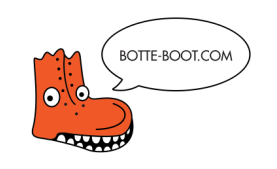
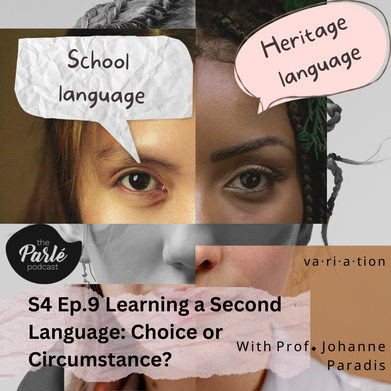
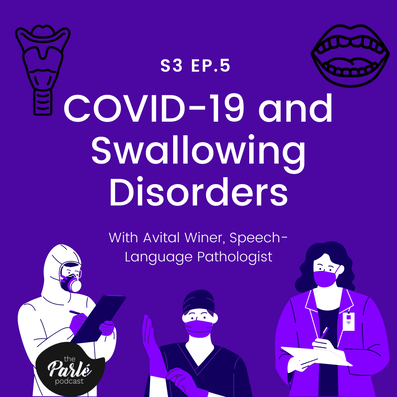
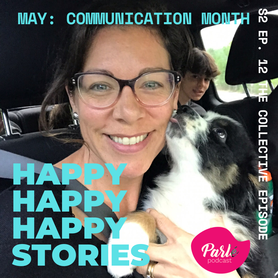
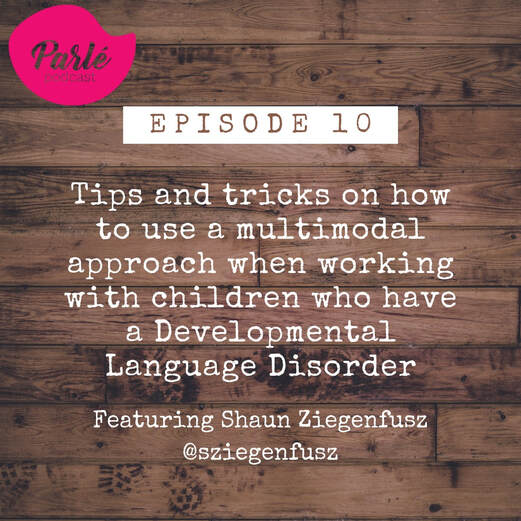
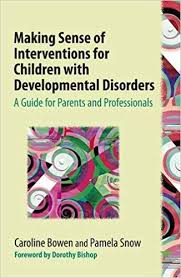
 RSS Feed
RSS Feed